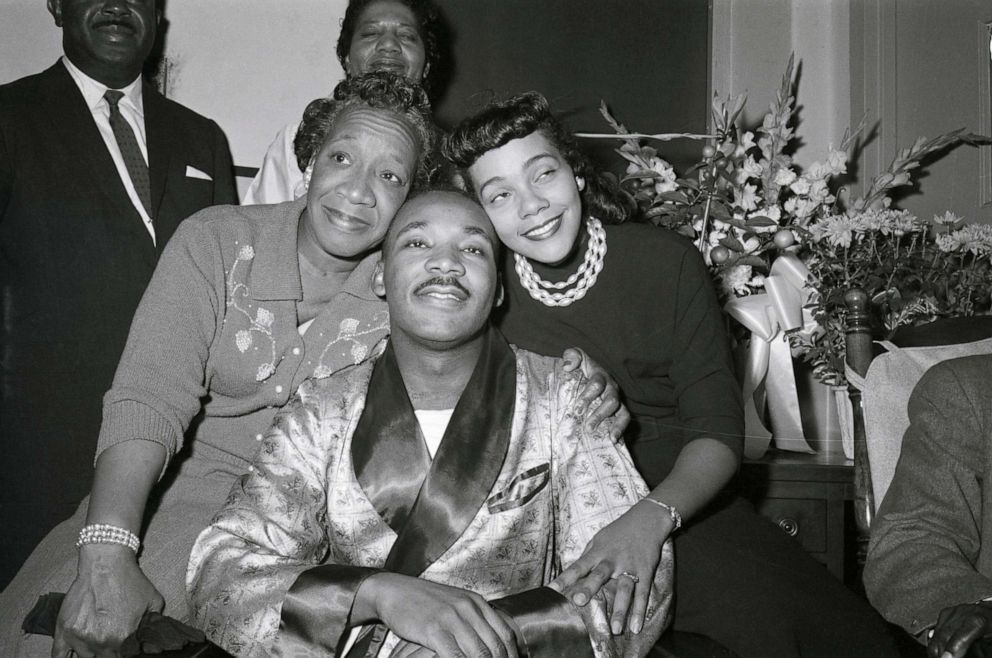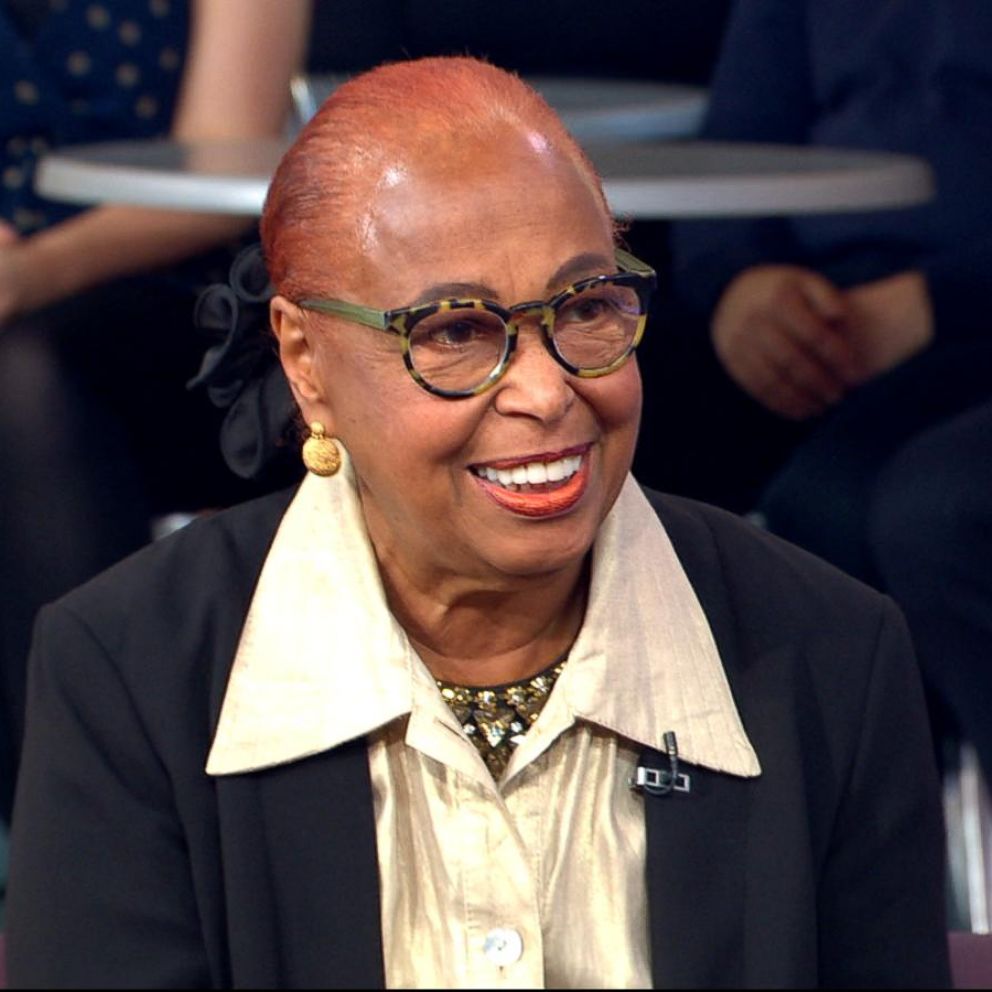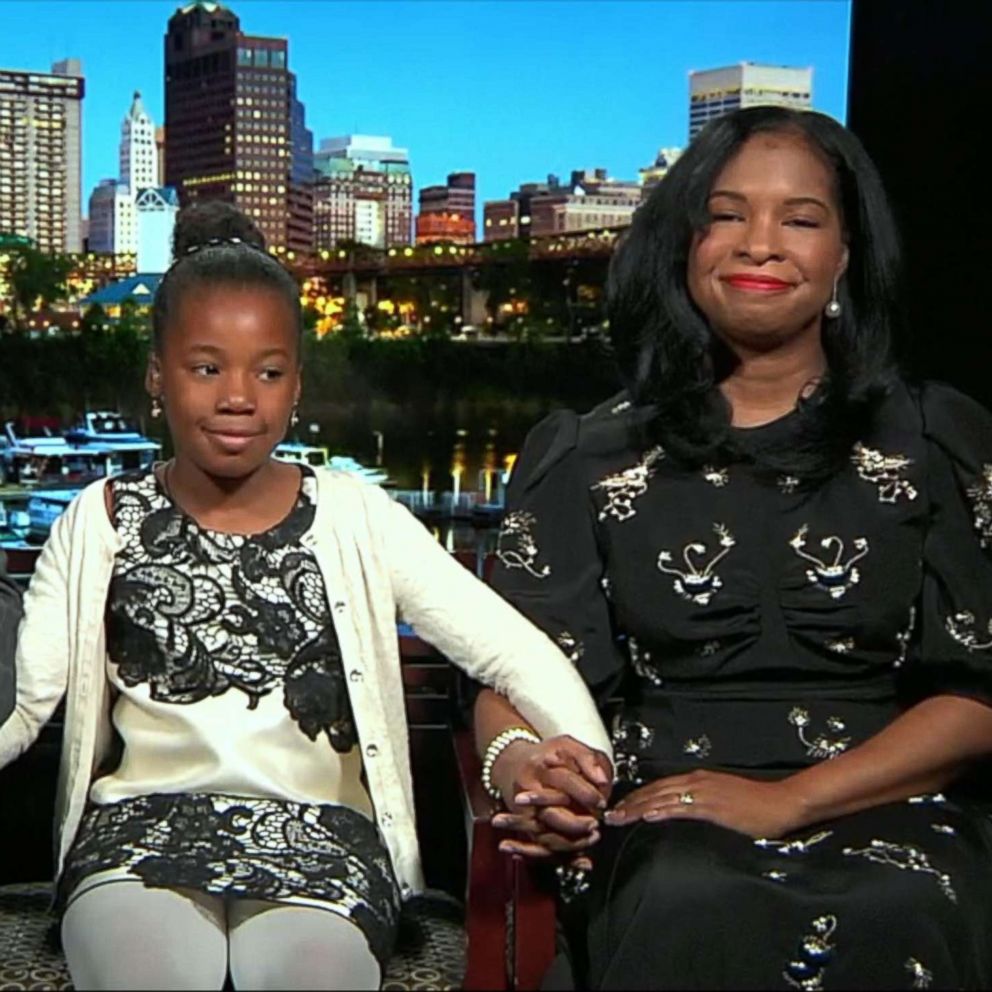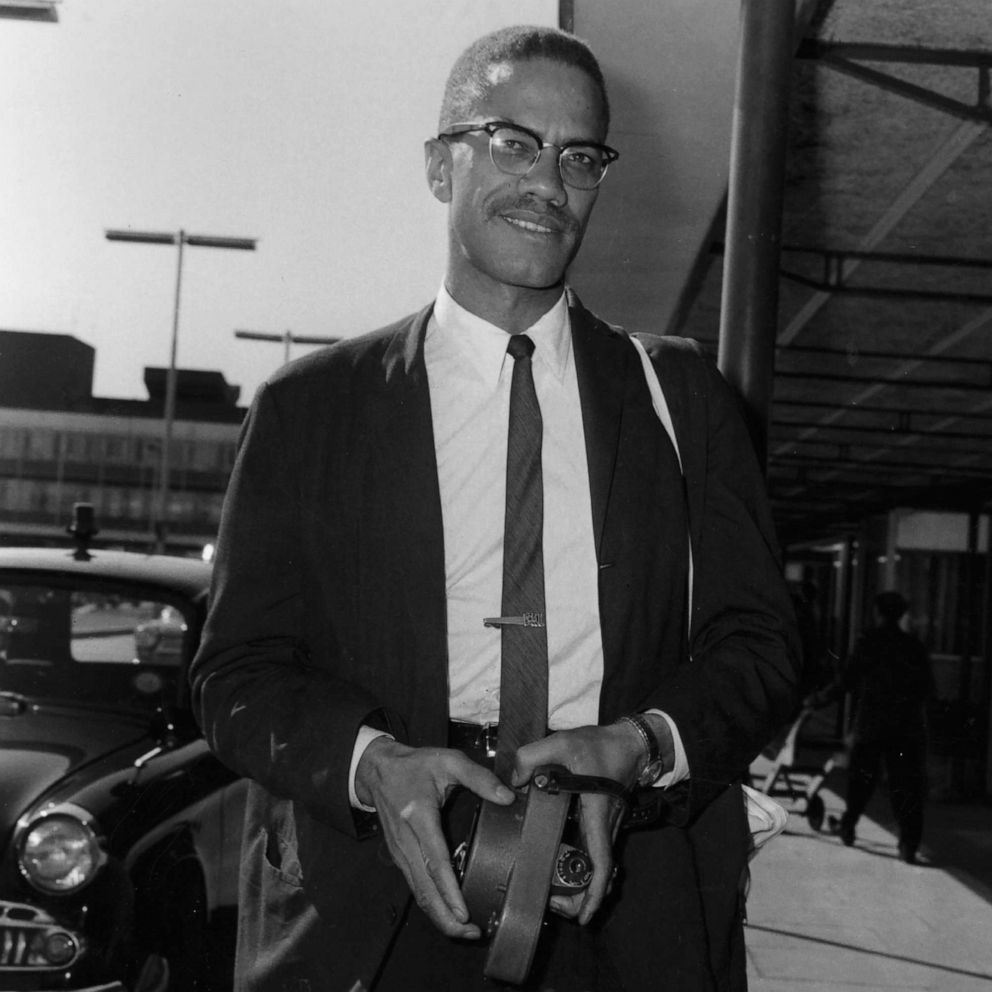This author is fighting for Black moms to be remembered in history
Anna Malaika Tubbs is the bestselling author of "The Three Mothers."
Black mothers are often the foundations of families and communities, yet they are also forgotten by history.
Author Anna Malaika Tubbs has made it her mission to ensure the contributions of Black mothers are not erased or left behind.
Tubbs is the author of the bestselling book "The Three Mothers," which tells the stories of Berdis Baldwin, Alberta King and Louise Little, three women who raised civil rights icons James Baldwin, Martin Luther King, Jr. and Malcom X, respectively.
Tubbs said she was inspired to write the book after touring the childhood home of Martin Luther King, Jr. and seeing no mention of Alberta King, who not only raised the civil rights hero but was a force in her own right, graduating from college in the 1930s and playing an active role herself in the civil rights movement and as the choir founder and longtime organist at Atlanta’s Ebenezer Baptist Church, according to her biography.
Tubbs had to start from scratch when telling the stories of Baldwin, King and Little because so little of their lives had been preserved.
"Our life stories are these puzzles and some puzzles are placed together beautifully and taken care of and put in a frame and put on a wall that we all admire," said Tubbs. "Other puzzles are left and everywhere we move we lose a piece of the puzzle or it gets chewed on or piece gets thrown away, and that was really how their lives had been treated before this book."

As Tubbs began to explore the lives of King, Baldwin and Little -- who were all born within six years of each other and who gave birth to their sons within five years of each other -- she said she saw similarities with the stories and sacrifices of Black mothers in America today.
The stories of Black mothers like Sybrina Fulton, Allison Jean, Wanda Cooper Jones and Michelle Kenney were in the headlines while Tubbs was writing the book, after their sons were killed in different incidents that impacted the nation.
"One of the most heartbreaking realities of these three women's lives is that their worst fears did come true, they all outlived their sons," Tubbs told "Good Morning America" of Baldwin, King and Little. "Through this we see, one, how dangerous it is to be Black in the United States of America and the pain that so many Black mothers can relate to in Alberta's, Berdis' and Louise's stories."
Berdis Baldwin was a single mother when she gave birth in a Harlem hospital in 1924 to James, the first of her nine children.
A writer herself, Baldwin was often praised by her son's teachers for the letters she wrote. And it was Baldwin who taught her children love and forgiveness, which is later seen in James' writing, according to Tubbs.
"When her son later says that he is a witness to the powerful fight and that he uses his writing to be this witness, he's not only saying something beautiful all on his own, he's actually directly quoting his mother and the lessons that she taught him," said Tubbs.
In addition to being an important force at Ebenezer Baptist Church, where her father was pastor, Alberta King was an advocate for using education and grassroots organizing as paths to freedom, according to Tubbs.
"All of these things that are really important to Martin Luther King, Jr., and that we know him for, Alberta King is practicing long before she's even thinking of having children," said Tubbs.
And Louise Little, the mother of Malcolm X, was a writer and radical activist long before her son became a voice for Black empowerment in the 1960s, according to Tubbs.
"She believes in Black independence and Black pride and achieving these by any means necessary. She's not afraid. She's very unapologetic. She speaks openly against white supremacy and anti-white assimilation," she said of Little. "Long before she has her son ... she's a very intense kind of activist and everything that we celebrate Malcolm X for."
In reading the story of these three moms, Tubbs said she hopes people think about what more we as a society should be doing Black mothers today.
"I hope that through understanding what they were living through, what they had to face day in and day out, helps us to think about how we can alleviate the burdens of Black mothers today," she said. "It's not to that we can sit here and say, 'Wow, Black women are so strong and let's admire them for that,' but instead to turn that admiration into action and to think about what is left for us in terms of system change, so that Black women don't have to face these burdens on their own."
Even in a society as advanced as the U.S., just the act of becoming a mother is perilous for Black women, who die of maternal causes at nearly three times the rate of white women, according to government data released this month.
Black women are often the heads of their households and, in addition to the everyday work of a job and a household, carry the worries of the dangers their children may face in a racially insensitive world. They face stereotypes and tangible obstacles like a gender pay gap that sees them losing out on nearly $1 million in earnings over the course of a career.
They face health disparities greater than their white counterparts, and cope with high rates of stress and burnout, according to the American Psychological Association (APA).
Black moms very specifically are fighting fights that we should have resolved years and years ago
"Black moms very specifically are fighting fights that we should have resolved years and years ago," said Tubbs. "The fact that we still don't have universal parental leave; the fact that universal affordable childcare still not available to everybody; the fact that doulas and midwives are not covered by insurance -- all of these things are making it harder and harder for women to do their job as mothers, but incredibly difficult for Black women who are not being given access to the resources that they need."
Since the release of "The Three Mothers" last year, Tubbs has continued to tell the stories of Baldwin, King and Little and, through them, the stories of countless Black moms, past, present and future.
"Mothers are doing incredible work. They are our leaders. They are our teachers. They are our caretakers," she said. "The more we can start to think about them in this light with this accurate representation of their roles, I hope the more we will be able to back them with a policy that will make their work easier, and will give them the backing that they need."
In a viral TED Talk she gave in November, Tubbs asked, "Would the world be different today if we had been telling their stories all along?"
Tubbs said it is her hope that more stories of Black mothers are told so that their legacies and lessons are not forgotten.
"I never intended for this book to be the only one written about them, but instead for it to be the beginning of our understanding that they are worthy of study and worthy of knowing," she said. "And hopefully more people will join me in that, not only for at least these three women, but for the many mothers and Black mothers specifically who we are not paying attention to, whose lives we're not holding dear in the way that we should."







